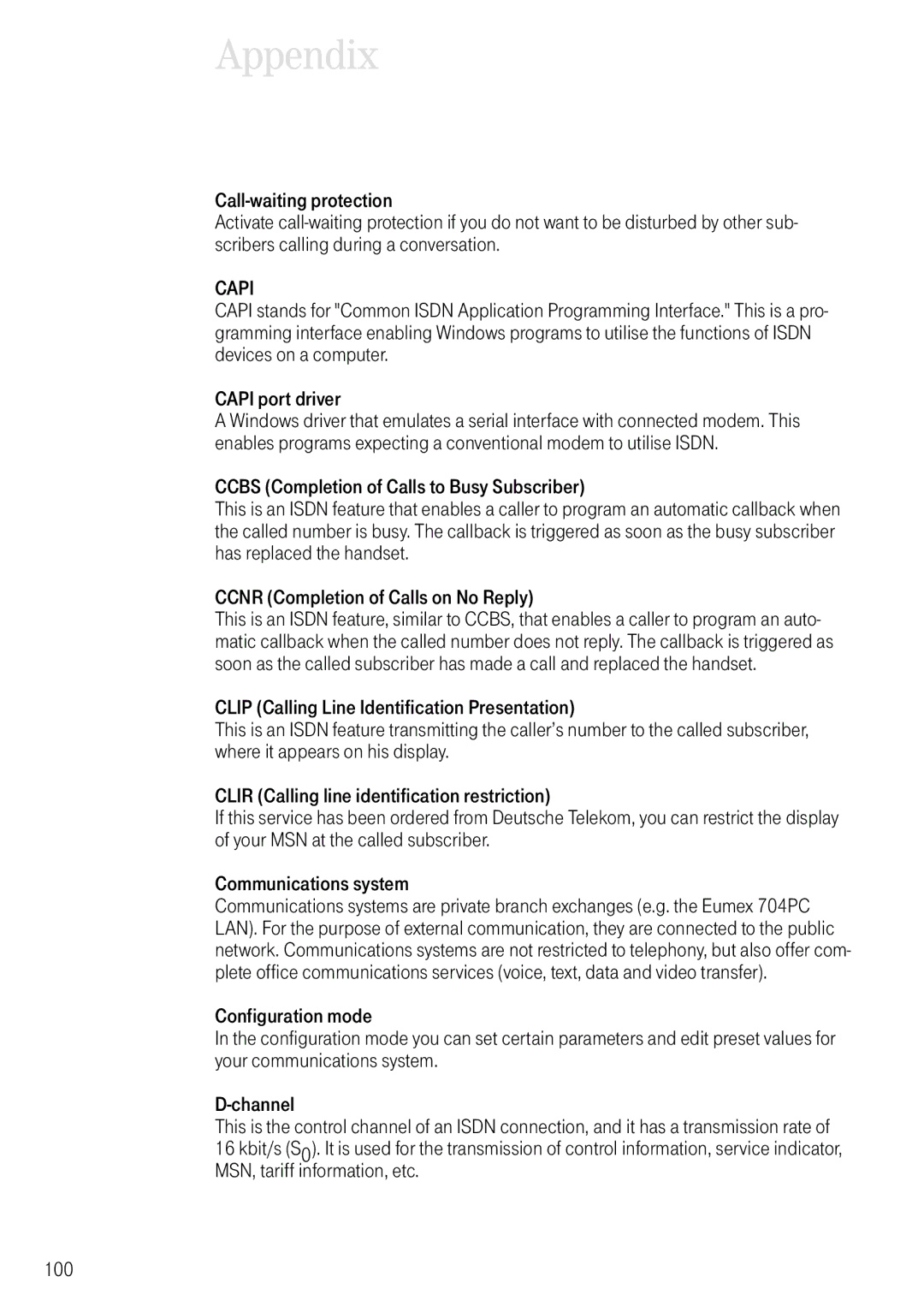Appendix
Activate
CAPI
CAPI stands for "Common ISDN Application Programming Interface." This is a pro- gramming interface enabling Windows programs to utilise the functions of ISDN devices on a computer.
CAPI port driver
A Windows driver that emulates a serial interface with connected modem. This enables programs expecting a conventional modem to utilise ISDN.
CCBS (Completion of Calls to Busy Subscriber)
This is an ISDN feature that enables a caller to program an automatic callback when the called number is busy. The callback is triggered as soon as the busy subscriber has replaced the handset.
CCNR (Completion of Calls on No Reply)
This is an ISDN feature, similar to CCBS, that enables a caller to program an auto- matic callback when the called number does not reply. The callback is triggered as soon as the called subscriber has made a call and replaced the handset.
CLIP (Calling Line Identification Presentation)
This is an ISDN feature transmitting the caller’s number to the called subscriber, where it appears on his display.
CLIR (Calling line identification restriction)
If this service has been ordered from Deutsche Telekom, you can restrict the display of your MSN at the called subscriber.
Communications system
Communications systems are private branch exchanges (e.g. the Eumex 704PC LAN). For the purpose of external communication, they are connected to the public network. Communications systems are not restricted to telephony, but also offer com- plete office communications services (voice, text, data and video transfer).
Configuration mode
In the configuration mode you can set certain parameters and edit preset values for your communications system.
This is the control channel of an ISDN connection, and it has a transmission rate of 16 kbit/s (S0). It is used for the transmission of control information, service indicator, MSN, tariff information, etc.
